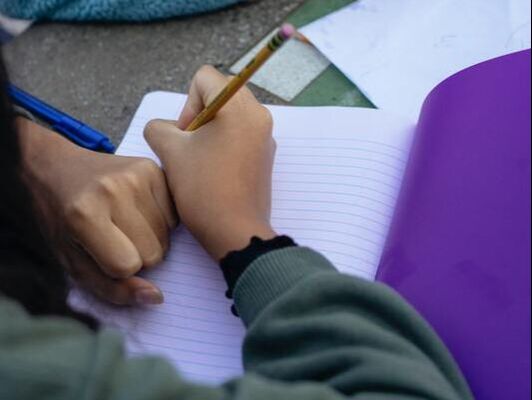|
The principal’s normally calm voice on the phone was unusually dramatic. “When I took this position, I was warned about the 4th grade teacher. She disciplines the class through fear. In the past, parents put up with her, but now a vocal group of parents want her fired or fixed—their words, not mine. I can’t fire her because she has tenure; yelling at students is not cause to terminate a contract. I’ve tried to suggest alternative ways to discipline her class but nothing’s worked. I’ve run out of ideas. Can you come? If anyone can help her, it’s you.” “Flattery will get you everywhere,” I teased. We made arrangements for my visit, with me wondering what I could do, given all the principal’s previous suggestions, none of which worked.
The teacher had been told I was coming and agreed to my visit. When I opened the door the noise and chaos stopped as if a movie director had yelled, “Cut!” I introduced myself. She left the room. How was I supposed to help her if she didn’t want to stay in the room? Before the kids could start up again, I grabbed a pile of paper and sat down on the floor. “Please come and join me,” I said, “and bring something to write with.” I tore each piece of paper in half. Warily, not knowing what to expect, they slowly formed a kind of circle around me. I asked them if they liked poetry. Some nodded, others shrugged. “Have any of you ever written a poem?” A few hands went up. At least they were listening. “I’m going to give each of you half a sheet of paper. I’d like you to write one sentence describing how you feel about something. Okay?” They nodded, clearly uncertain. “Don’t write your name on the paper—just the sentence.” I passed out the sheets of paper. “What should we write?” asked a pigtailed girl. “Anything you like about how you feel,” I said. “You gonna grade it?” asked one of the boys who’d been throwing a paper airplane when I entered the classroom. “No. All I want is for you to write one sentence about how you feel.” “What for?” “You’ll see,” I grinned. “You have a couple of minutes to write so go to it.” I’ve learned that when I’m dealing with difficult classroom situations, the element of surprise helps shift behavior patterns long enough for me to interact with students in ways I hope let them know I care about them. I never go in with a specific plan—each situation is unique. What I do is prepare a number of possibilities—like a smorgasbord—enabling me to choose an initial activity that helps to calm the chaos and engage the children’s interest. When I heard about the teacher’s yelling, I decided to do the group poem as a way for the children to express their feelings in a safe way. After they finished, I collected the papers, mixed them up, then handed them out. “I’d like you to read the sentence on the paper you picked. Who wants to start?” Still puzzled, each in turn read their sentence: I hate school. I feel bad when I have to read out loud. I feel horrible. I hate being yelled at. I feel scared when someone yells at me . . . None of them mentioned the teacher. “Okay,” I said. “Now we’re going to put the sentences in whatever order you like and we’ll make a group poem.” “How can it be a poem if we all write it?” many asked simultaneously. “Why not? I asked. No answer. “Who thinks their sentence is a good beginning?” One girl raised her hand. I took the paper from her and marked it #1. Soon someone said, “I think this goes next.” I numbered the papers as they handed them to me so we’d know the order the class thought worked best. When I had all the papers, I read out what had been written. “Gosh,” said airplane boy, “it sounds like a poem.” “It is a poem, and you all wrote it. What should we title it?” “I feel . . .” suggested the girl sitting next to me. The group looked pleased. When the teacher returned, joined by the principal, I asked airplane boy to read their poem. The teacher looked shocked. The principal looked pleased. “Would someone like to tell our guests about our poem?” One child volunteered. She talked about what they had done and ended with, “It was fun. I’d like to do it again.” I asked the teacher if she’d be willing to type up the sentences and give everyone a copy of their poem. She nodded. I thanked the children for their good work and stayed while they got ready to leave. When the teacher and I were alone I told her how much I appreciated the opportunity to work with her class. She started to cry. This was not the hardnosed woman I’d been told about. I waited for her to feel ready to speak. She wiped her eyes, said, “Thank you,” and left the room. When I met with the principal, all he would tell me was that she’d asked for leave without pay. He asked if I could teach the class for two days while he hired a sub. I agreed. The kids asked if they could write more poems together. We did. None of them mentioned yelling. At the end of my two days, one of the boys said, “I’m poemed out but I feel good.” How would you have dealt with the situation?
2 Comments
Marlene Simon
1/7/2023 11:01:14 am
This story brought tears to my eyes. I wish I could have had Nancy as a teacher and I wish we could have been colleagues when I worked with students. What I love is the gentleness and lack of judgment in this story. There were no pointing of fingers or casting blame or shaming. The message was shown not told. What a natural and what a soulful approach to an endeavor that is not just about learning a subject, but a soulful approach to sharing knowledge, inspiring learning, working together as a group, and passing down culture. Again, so very, very touching.
Reply
Claudia
1/12/2023 09:22:35 pm
what a natural healer you are, bringing people together, in this case, four year olds. The poem was wonderful and I loved watching the group come together through your lovely hands.
Reply
Leave a Reply. |
Monthly StoriesStories inspired by world tales to challenge and comfort. Archives
July 2024
Categories |
Copyright © Nancy King 2020 | Site Design by Angulo Marketing & Design
|
|
Nancy King is a widely published author and a professor emerita at the University of Delaware, where she has taught theater, drama, playwriting, creative writing, and multidisciplinary studies with an emphasis on world literature. She has published seven previous works of nonfiction and five novels. Her new memoir, Breaking the Silence, explores the power of stories in healing from trauma and abuse. Her career has emphasized the use of her own experience in being silenced to encourage students to find their voices and to express their thoughts, feelings, and experiences with authenticity, as a way to add meaning to their lives.
|


 RSS Feed
RSS Feed